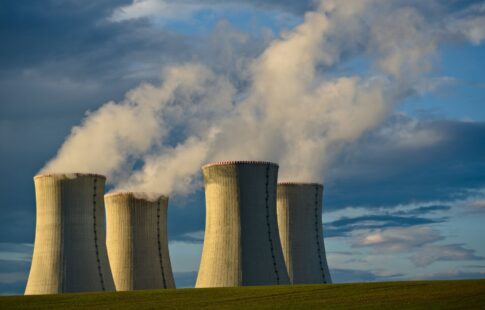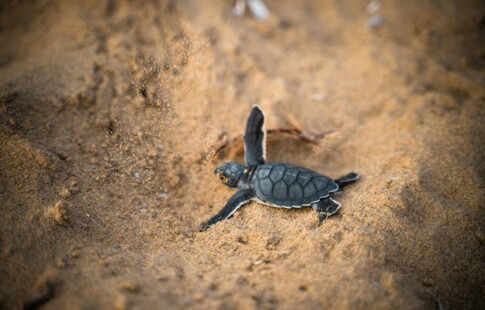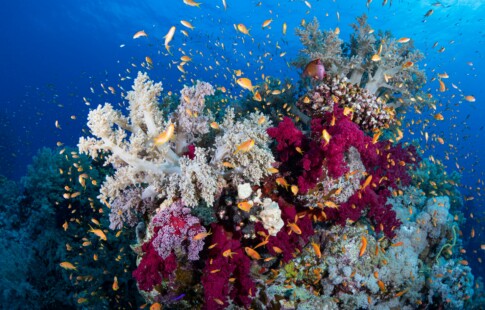
Pros and Cons of Biotechnology for the Environment
We are reader-supported. When you buy through links on our site, we may earn affiliate commission.
The climate change crisis is a growing concern for many governments worldwide. As the planet’s temperature rises, weather patterns change and cause disasters like storms, floods, heatwaves and droughts to worsen.
To try and mitigate global warming and the climate change crisis, many industries are looking into biotechnology applications and solutions. The goal is to make the environment more sustainable and provide a greener future for generations to come.
Below is more about biotechnology and some of its pros and cons for the environment.
What is Biotechnology?
Károly Ereky was an agricultural engineer who first used the term biotechnology in 1919. Biotechnology describes technology that utilizes living organisms, biological systems or parts of them to develop a wide range of products or processes.
A simple example of a process that relies on biotechnology is brewing and baking bread. Yeast is the living organism that produces bread, which is the desired product. However, biotechnology has evolved and can now be used to create advanced processes and products.
Biotechnology is used for various applications, such as altering genes in living organisms, breeding new plant species in agriculture, or developing new medicines and therapies.
Generally, using biotechnology offers many benefits to humans, but it can also lead to several drawbacks if used improperly.
Pros and Cons of Environmental Biotechnology
Many industries in the global economy are adopting sustainable business practices. Consider how some companies, such as Melissa and Doug, Palmolive and Nature Valley, have partnered with How2Recycle, a standardized labeling system that tells consumers how to recycle products properly.
What are some specific pros of biotechnology in terms of the environment?
Reduce Plastic Pollution
Because the field has evolved into what it is today, it’s possible to produce and recycle all types of compounds and materials. A major environmental issue is plastic pollution. Non-biodegradable plastic is not organic, is nearly indestructible and can harm animal species in the environment, especially marine life.
One Amsterdam-based company, Avantium, issued press releases touting advancements in its bioplastic products. One product, the novel PEF, is 100% plant-based, degradable and recyclable plastic that comes with various applications.
Produce Gasoline From Sustainable Sources
It’s no secret that fossil fuel production fuels the climate crisis, but we’ve depended on them to supply energy for cars, planes, trains and electricity.
With biotechnology, companies are looking into producing biofuels using crops. However, using these crops can also lead to deforestation and rising food prices. A French company called Global Bioenergies is working with Audi to produce renewable gasoline from non-food residue feedstocks, such as wood chips and wheat straw.
Replace Animal Products With Alternatives
The meat industry is a significant polluting industry, but with biotechnology, this may change. Biotech reduces the need for land, water and energy because it can grow and cultivate meat without the animal.
In 2020, Singapore was the first country to approve products from Eat Just, a San Francisco-based company that produces plant-based alternatives to animal products like eggs and meat.
What are some of the cons of biotechnology in how it impacts the environment?
Threatens Survival of Animal Species
While biotechnology is beneficial in improving crop yields and production for farmers, it does not offer genetic diversity in living organisms. Biotechnology processes are human-controlled, impacting the natural balance of animal and plant species.
Genetic diversity is crucial for plant and animal species and biotechnology could hinder that diversity.
Affects Soil Fertility
Crops enhanced with biotechnology soak a lot of nutrients out of the soil. A high intake of nutrients can negatively impact soil fertility, so future crops may not be able to grow or be harvested.
Additionally, farmers will often use fertilizers to help mitigate this problem. Studies show that excessive use of fertilizers leads to greenhouse gas (GHG) emissions, furthering the climate crisis.
Unknown Environmental Impacts
While environmental biotechnology has its benefits, there are still unknown, unforeseen consequences of using this advanced technology. There are still questions in the field that have yet to be answered.
If biotechnology is relied on, it could negatively affect the environment, but future generations would have to deal with actions taken right now.
Biotechnology is undoubtedly an interesting topic and has its pros and cons regarding how using it impacts the environment. Many countries embrace it, while others may be more hesitant to, as it does have some drawbacks worth considering.
The Environment and Biotechnology
Scientists must research biotechnology before applying it in the real world. The field is still in its infancy, so there’s plenty of time for it to develop and improve. Biotechnology will likely become more prevalent in society, and it will be fascinating to see what effects it has on the environment in the future.
Share on
Like what you read? Join other Environment.co readers!
Get the latest updates on our planet by subscribing to the Environment.co newsletter!
About the author

Jane Marsh
Starting from an early age, Jane Marsh loved all animals and became a budding environmentalist. Now, Jane works as the Editor-in-Chief of Environment.co where she covers topics related to climate policy, renewable energy, the food industry, and more.





